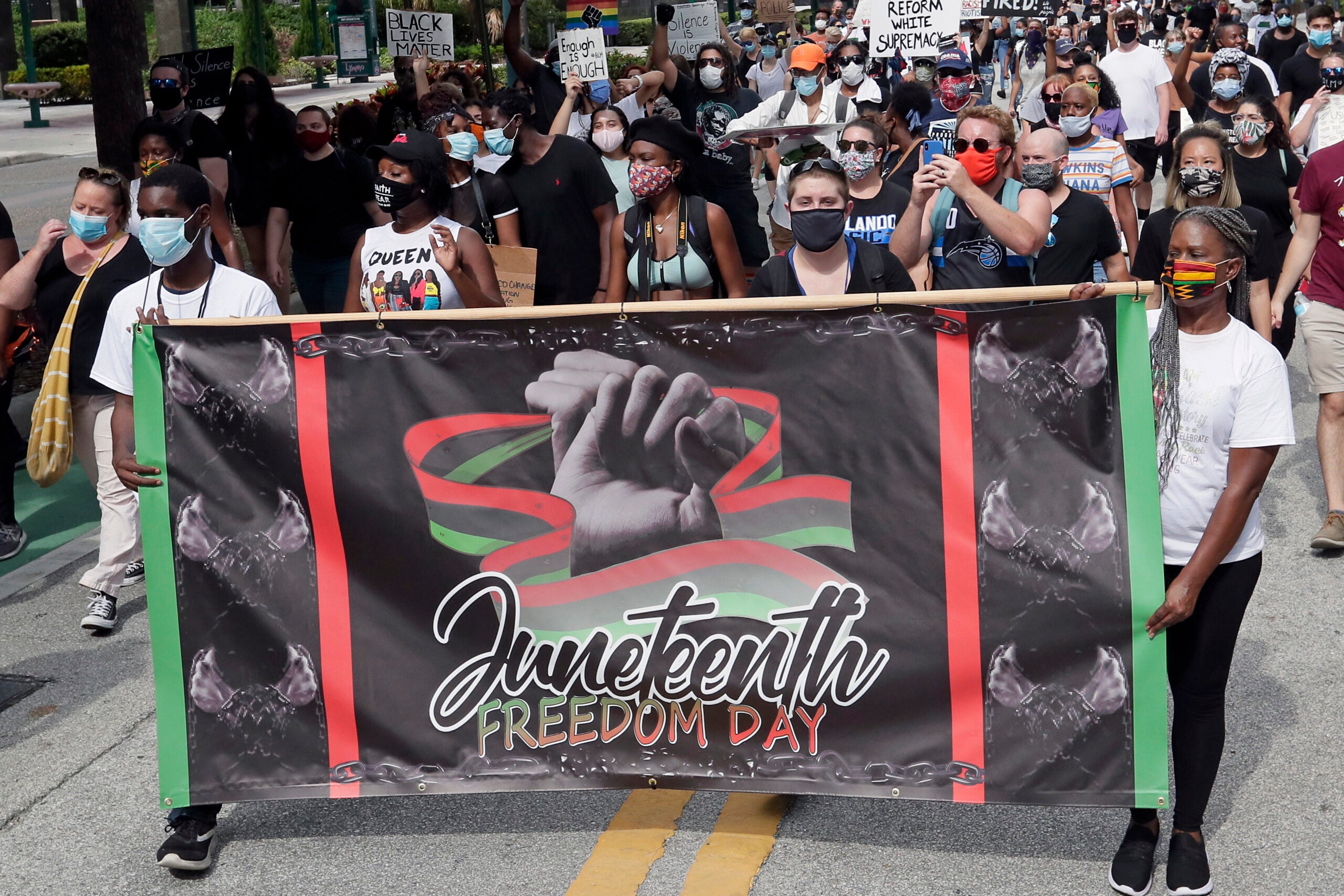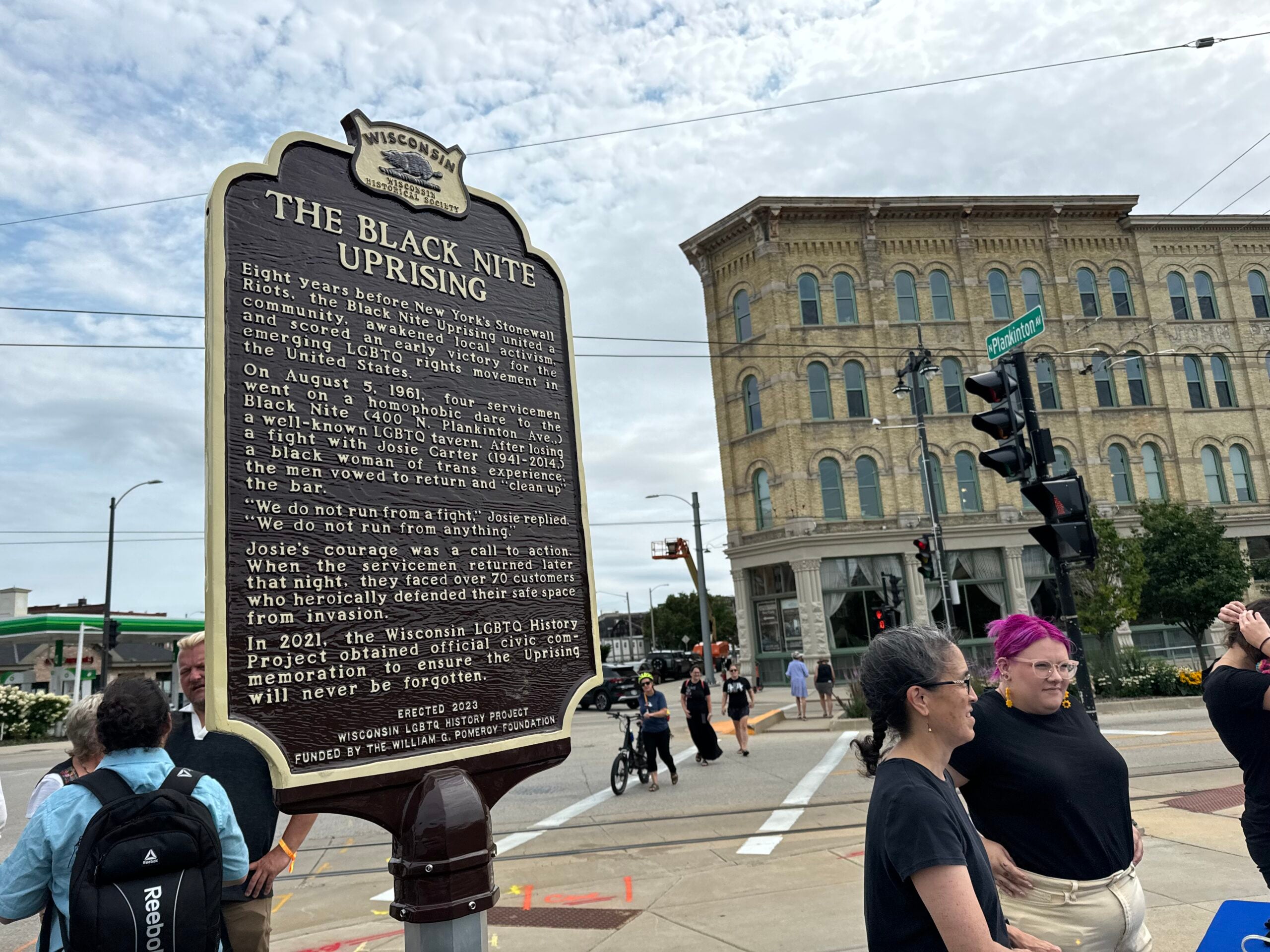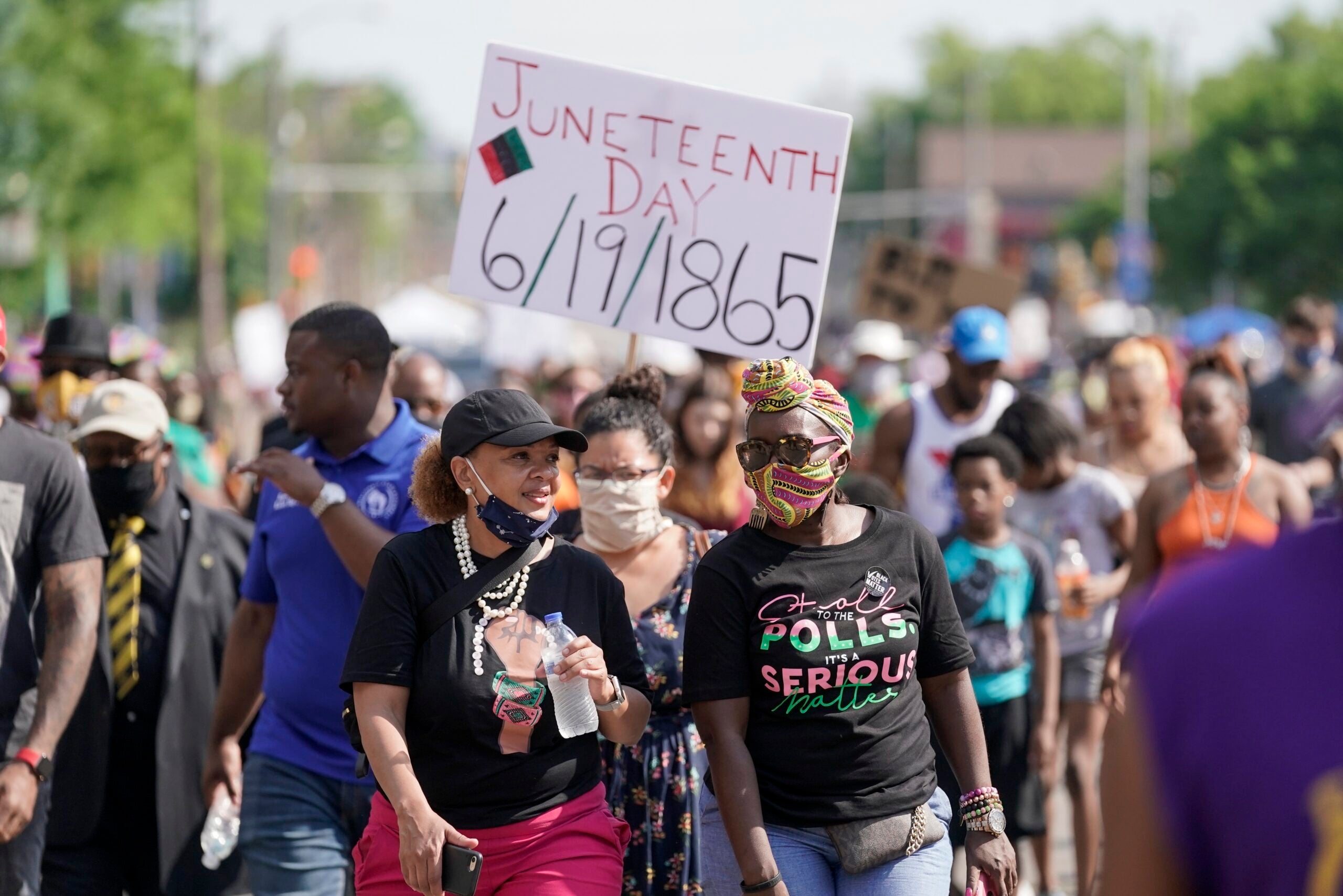Often celebrated as the end of slavery in the United States, Juneteenth became a federal holiday on Thursday after being signed into law by President Joe Biden. That happened shortly after the measure was swiftly passed in the U.S. Senate with no opposing votes and only 14 Republicans in the House, including U.S. Rep. Tom Tiffany, R-Hazelhurst, voting against it.
Such quick Congressional action with bipartisan support is rare, but it begs the question whether such swiftness could be applied to legislation to combat systemic racism.
Sakara Wages, a founding member of the Black Platteville Community Network, touches on that during a conversation with Kate Archer Kent on “The Morning Show.”
Stay informed on the latest news
Sign up for WPR’s email newsletter.
“It’s just extremely interesting that we choose this platitude over some real change, right?” she asked. “There was obviously capacity to do so.”
She joined Robert Smith, a resident historian of America’s Black Holocaust Museum in Milwaukee and associate professor of history at Marquette University, to talk about the implications of this new federal holiday that has long been celebrated by members of the Black community.
This interview has been edited for brevity and clarity.
Kate Archer Kent: Robert and Sakara, what are you feeling after the news that Juneteenth is now the 12th legal federal holiday?
Robert Smith: It’s a longstanding and important recognition of two fundamental realities that are directly connected. Obviously, the ending of the institution of slavery but also the commencement of this long journey toward full citizenship. And as we’ve seen over the last year and several years and throughout that 150-or-more-year period, it’s been difficult, beleaguered, tortured in so many ways. And so, it’s important to have a federal holiday to recognize it. But Black people have been celebrating this for a long time.
Sakara Wages: For me, the way it speaks to our current situation is that it’s the name of a movement that was necessary to enforce a policy. And so it’s just really ironic that here we have a piece of law acknowledging that day as a holiday when we have such a robust history of ignoring laws when it comes to Black folks crying for their rights for citizenship in this country. I just think it’s a really ironic way to acknowledge the holiday.
KAK: Robert, thousands upon thousands of people gathered in cities for protests, Black Lives Matter, the murder of George Floyd and so many others. What impact did these events have on the collective view of Juneteenth?
RS: Well, Juneteenth certainly has been a mainstay in terms of the run of holidays and celebrations that African Americans celebrate. It stands as its own significance, independent of what’s been occurring over the last several years.
Obviously, the last several years have certainly amplified that fundamental question of, “Are folks who are under the constant threat of state violence being treated as full citizens?” And I think we all know that that answer comes back very challenging in a lot of respects. Juneteenth has gained quite a bit more traction because of that.
But it’s been there for a long time. And so I agree with Sakara that we don’t want to go so far as to put too much value on the federal recognition, which kind of took over in a very short period of time. It was a pretty quick process, all things considered.
What we really want to remember is that this has been a holiday that has been outside of the Hallmark engine. It’s been a part of the oral tradition of African Americans, it’s been a part of the longstanding ways in which folks celebrate and recognize what it means to be a full citizen on their terms and defined using their own meanings.
KAK: Robert, Juneteenth celebrates a time when slaves in Galveston, Texas, were told the war and slavery were over. So how do the Emancipation Proclamation and the 13th Amendment fit into this?
RS: The Emancipation Proclamation is an executive order; it is wartime authority that President Lincoln has as commander in chief. It’s only binding to states under rebellion. And so at the end of the conflict, the 13th Amendment is necessary in order to bring a functional end to slavery, through a constitutional edict, through an amendment.
And of course, what we know is that in 1865, there were varying interpretations of what Black emancipation and the abolition of slavery would mean. Whether you’re a Black person or a white southerner, a white northerner, there are all these differing and competing interpretations, such that we as a nation are in need of a 14th Amendment that clarifies that indeed folks are citizens.
KAK: Sakara, what are some of the current struggles you see related to Juneteenth?
SW: One of the things that Robert mentioned is this idea that nobody knew what Black freedom, Black liberation, emancipation looked like. And so there were different operational definitions of emancipation. And I still think we have that precedent. Currently, we have Black folks looking to be liberated. We’re looking for abolition. We’re looking for all of these solutions, and there isn’t one way to do it. We need to tap into this subjective worldview and allow everybody’s ideas and definitions to come to the table.
I also think this idea behind that is this cognitive deficiency in cognitive bandwidth. When you are oppressed or in slavery or under conditions beyond your control, it’s hard to think. It’s difficult — I’m not going to say impossible — but it’s hard to think through some of these very tough problems. And so, there’s this need to recharge cognitive bandwidth such that we can apply that thinking to these very difficult problems and co-create a new way of living.
Wisconsin Public Radio, © Copyright 2024, Board of Regents of the University of Wisconsin System and Wisconsin Educational Communications Board.







